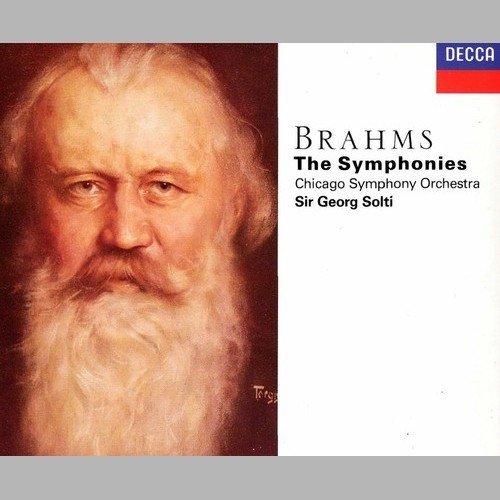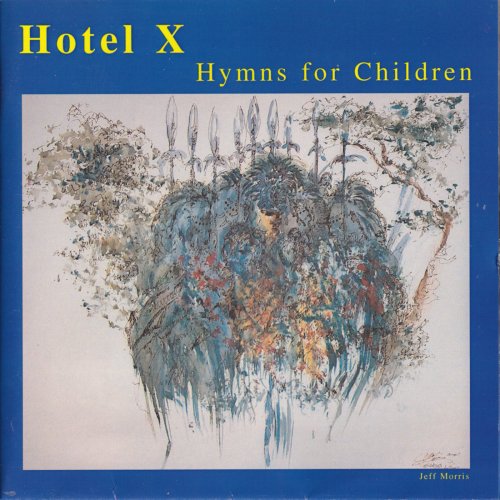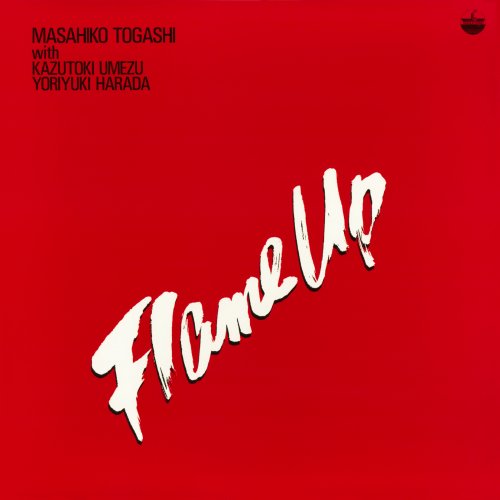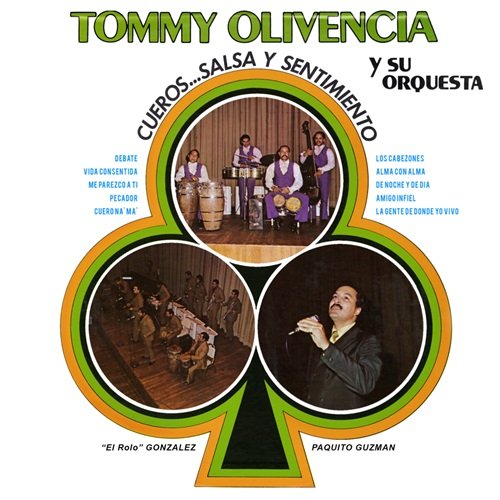Chicago Symphony Orchestra, Georg Solti - Brahms - The Symphonies (1991)

Artist: Chicago Symphony Orchestra, Georg Solti
Title: Brahms - The Symphonies
Year Of Release: 1991
Label: London Records
Genre: Classical
Quality: FLAC (image+.cue,log,scans)
Total Time: 03:20:08
Total Size: 945 Mb
WebSite: Album Preview
Tracklist: Title: Brahms - The Symphonies
Year Of Release: 1991
Label: London Records
Genre: Classical
Quality: FLAC (image+.cue,log,scans)
Total Time: 03:20:08
Total Size: 945 Mb
WebSite: Album Preview
CD 1: Symphonie Nr. 1
Symphonie Nr. 1 c-moll, Op. 68 - 48:57
I. Un poco sostenuto. — Allegro - 16:53
II. Andante sostenuto - 9:52
III. Un poco Allegretto e grazioso - 4:41
IV. Adagio. — Allegro non troppo, ma con brio - 17:31
Recorded: Medinah Temple, Chicago, United States, January 1979
CD 2: Symphonie Nr. 2 • Tragische Ouvertüre
Symphonie Nr. 2 D-dur, Op. 73 - 45:43
I. Allegro non troppo - 20:48
II. Adagio non troppo. — L'istesso tempo, ma grazioso - 10:33
III. Allegretto grazioso (quasi Andantino). — Presto ma non assai - 5:31
IV. Allegro con spirito - 8:51
Recorded: Medinah Temple, Chicago, United States, January 1979
Tragische Ouvertüre, Op. 81 - 13:27
Recorded: Medinah Temple, Chicago, United States, May 1978
CD 3: Symphonie Nr. 3 • Akademische Festouvertüre
Symphonie Nr. 3 F-dur, Op. 90 - 39:09
I. Allegro con brio - 13:56
II. Andante - 9:46
III. Poco Allegretto - 6:29
IV. Allegro - 8:58
Recorded: Medinah Temple, Chicago, United States, May 1978
Akademische Festouvertüre, Op. 80 - 10:35
Recorded: Medinah Temple, Chicago, United States, May 1978
CD 4: Symphonie Nr. 4
Symphonie Nr. 4 e-moll, Op. 98 - 42:18
I. Allegro non troppo - 12:45
II. Andante moderato - 12:58
III. Allegro giocoso. — Poco meno Presto. — Tempo I - 6:17
IV. Allegro energico e passionato. — Più Allegro - 10:18
Recorded: Medinah Temple, Chicago, United States, May 1978
Performers:
Chicago Symphony Orchestra
Georg Solti, conductor
Even as he is most closely associated with the music of Wagner and Beethoven, conductor Georg Solti enjoyed a long and fruitful relationship with the orchestral music of Johannes Brahms. Solti's own personal preferences in terms of Brahms, judging based on his performance history, were slanted toward the Haydn Variations, German Requiem, and the concerti, but in the late '70s he undertook a cycle of the symphonies with the Chicago Symphony Orchestra for Decca London that some expert listeners feel have never been bettered since.
Solti's Brahms is flexible, easygoing, and never hurried, and the late analog recording, made at the Medinah Temple in Chicago, is warm, lush, and persuasive. During these sessions, the Chicago Symphony Orchestra sounds near perfect in intonation and in responsiveness to its conductor. Solti does bring some sense of individuality to the proceedings in his choice of tempi, which are generally on the slow side and directed with a design toward expansiveness in Brahms, a working method that succeeds very well in the second movement of the Symphony No. 4. On the other hand, tautness and tension are not hallmarks of these interpretations; Solti prefers a soft-focus approach to the whole, sacrificing potential power for the sake of a gently flowing orchestral texture that is easy to follow and soothing to experience. This ease of expression makes Brahms: The Four Symphonies a great starter set for those who don't really know these works, but to a more experienced ear how much one enjoys these interpretations depends to some extent on how they like their Brahms -- rare, medium, or well done? Solti and the Chicago Symphony Orchestra's Brahms: The Four Symphonies is definitely on the "well-done" side, a reasonably uncontroversial option that will satisfy most of the listeners who would approach it. Brahms' Tragic Overture and Academic Festival Overture are also included, but not the Haydn Variations, a pity as it was utilized effectively as filler for Decca London's single-disc version of the Symphony No. 4.
Solti's Brahms is flexible, easygoing, and never hurried, and the late analog recording, made at the Medinah Temple in Chicago, is warm, lush, and persuasive. During these sessions, the Chicago Symphony Orchestra sounds near perfect in intonation and in responsiveness to its conductor. Solti does bring some sense of individuality to the proceedings in his choice of tempi, which are generally on the slow side and directed with a design toward expansiveness in Brahms, a working method that succeeds very well in the second movement of the Symphony No. 4. On the other hand, tautness and tension are not hallmarks of these interpretations; Solti prefers a soft-focus approach to the whole, sacrificing potential power for the sake of a gently flowing orchestral texture that is easy to follow and soothing to experience. This ease of expression makes Brahms: The Four Symphonies a great starter set for those who don't really know these works, but to a more experienced ear how much one enjoys these interpretations depends to some extent on how they like their Brahms -- rare, medium, or well done? Solti and the Chicago Symphony Orchestra's Brahms: The Four Symphonies is definitely on the "well-done" side, a reasonably uncontroversial option that will satisfy most of the listeners who would approach it. Brahms' Tragic Overture and Academic Festival Overture are also included, but not the Haydn Variations, a pity as it was utilized effectively as filler for Decca London's single-disc version of the Symphony No. 4.


![Raz Mesinai - Lovecraft (2022) [Hi-Res] Raz Mesinai - Lovecraft (2022) [Hi-Res]](https://img.israbox.com/img/2026-01/06/3kgsc6i2ufyrvs1z39isbz21j.jpg)


![Don Sebesky - Three Works For Jazz Soloists & Symphony Orchestra (1979) [Hi-Res] Don Sebesky - Three Works For Jazz Soloists & Symphony Orchestra (1979) [Hi-Res]](https://img.israbox.com/img/2026-01/07/bziob1ihb9u6fey2poj1xqnen.jpg)


